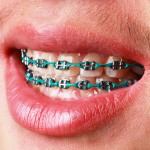
The presence of orthodontic brackets can have a negative impact on oral hygiene. Conventional brackets (CB) are considered to be bulkier and more prone to bacterial aggregation than self-ligating brackets (SLB).
The aim of this review was to compare the impact of SLBs and CBs on pain and oral hygiene.
Methods
Searches were conducted in the Medline, Embase, Cochrane Central Register of Controlled Trials, World Health Organization International Clinical Trials Registry Platform, Chinese BioMedical Literature Database and the China National Knowledge Infrastructure databases. Randomised controlled trials (RCTs) of patients undergoing orthodontic treatment with CB or SLB were considered. Outcomes included discomfort evaluated using a visual analogue scale and oral hygiene evaluated using plaque indices of bacterial colonisation.
Two reviewers independently selected studies and assessed risk of bias using the Cochrane tool. Where data could be pooled continuous data was presented as mean difference (MD) with 95% confidence interval (CI).
Results
- 12 studies involving 575 patients were included. 311 were treated with SLBs and 264 with CBs.
- Sample sizes ranged from 16-30.
- 2 studies were considered to be at low risk of bias, the other studies were at unclear risk of bias.
- Discomfort/pain
- 5 studies reported and meta-analysis (3 studies) showed no significant difference between SLB and CB in discomfort reduction at:-
- 4 hrs MD = 1.90 (95%CI; -4.08 to 7.87)
- 24 hrs MD = -5.31 (95%CI; -11.29 to 0.68)
- 3 days MD = -2.70 (95%CI; -10.15 to 4.76)
- 7 days MD = -2.99 (95%CI; -6.52 to 0.54)
- Oral hygiene
- 9 studies reported on this outcome. 5 reported on plaque scores with a meta-analysis of 4 studies demonstrating no difference MD = -0.04 (95%CI; -0.30 to 0.22). 4 studies reported on Mutans streptococci count claiming that SLB was not superior to CB but they could not be meta-analysed.
Conclusions
The authors concluded:-
Clinical evidences from existing RCTs suggest that SLBs do not outperform CBs in reliving discomfort or promoting oral health in clinic.
Comments
The authors have searched a good selection of databases in order to identify relevant studies, only including randomised controlled trials appropriately. However only a small number of small trials were available and the authors highlight heterogeneity due to differences in bracket bands and treatment approaches. Consequently while this review suggests that there are unlikely to be differences between SLBs and CBs in relation to their impact on pain and oral hygiene the findings should be interpreted cautiously as well conducted high quality RCTs could have an impact 0n the findings.
Links
Primary paper
Yang X, Su N, Shi Z, Xiang Z, He Y, Han X, Bai D. Effects of self-ligating brackets on oral hygiene and discomfort: a systematic review and meta-analysis of randomized controlled clinical trials. Int J Dent Hyg. 2016 Apr 20. doi: 10.1111/idh.12220. [Epub ahead of print] Review. PubMed PMID: 27095145.
Other references

Orthodontic brackets type and oral hygiene https://t.co/0WkHHQmXJM
[…] post Orthodontic brackets: type unlikely to affect oral hygiene appeared first on National Elf […]
Orthodontic brackets: type unlikely to affect oral hygiene https://t.co/0WkHHQmXJM
Self-ligating brackets or conventional orthodontic bracket for oral hygiene? https://t.co/0WkHHQmXJM
Conventional or self-ligating orthodontic bracket for oral hygiene? https://t.co/0WkHHQmXJM
Type of orthodontic bracket unlikely to affect oral hygiene https://t.co/0WkHHQmXJM
Don’t miss-Orthodontic brackets: type unlikely to affect oral hygiene https://t.co/0WkHHQmXJM
Patients under the care of orthodontics may be concerned about the health of their teeth. However, it is possible to keep your teeth healthy with braces! It all starts by choosing the right style, such as the one pictured here.
[…] Orthodontic brackets: type unlikely to affect oral hygiene […]